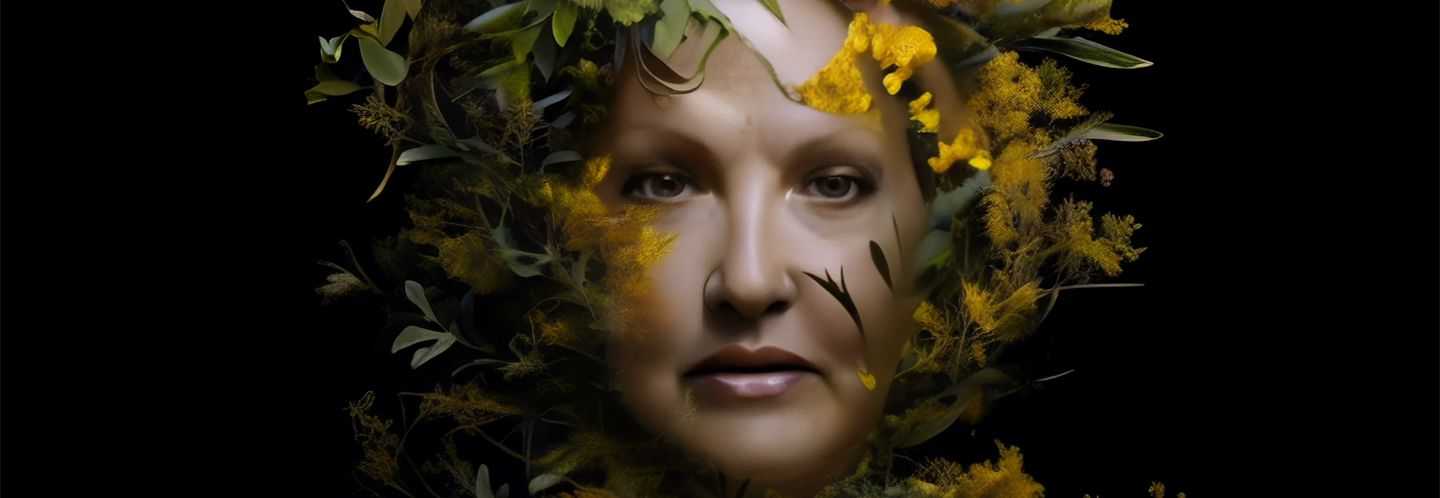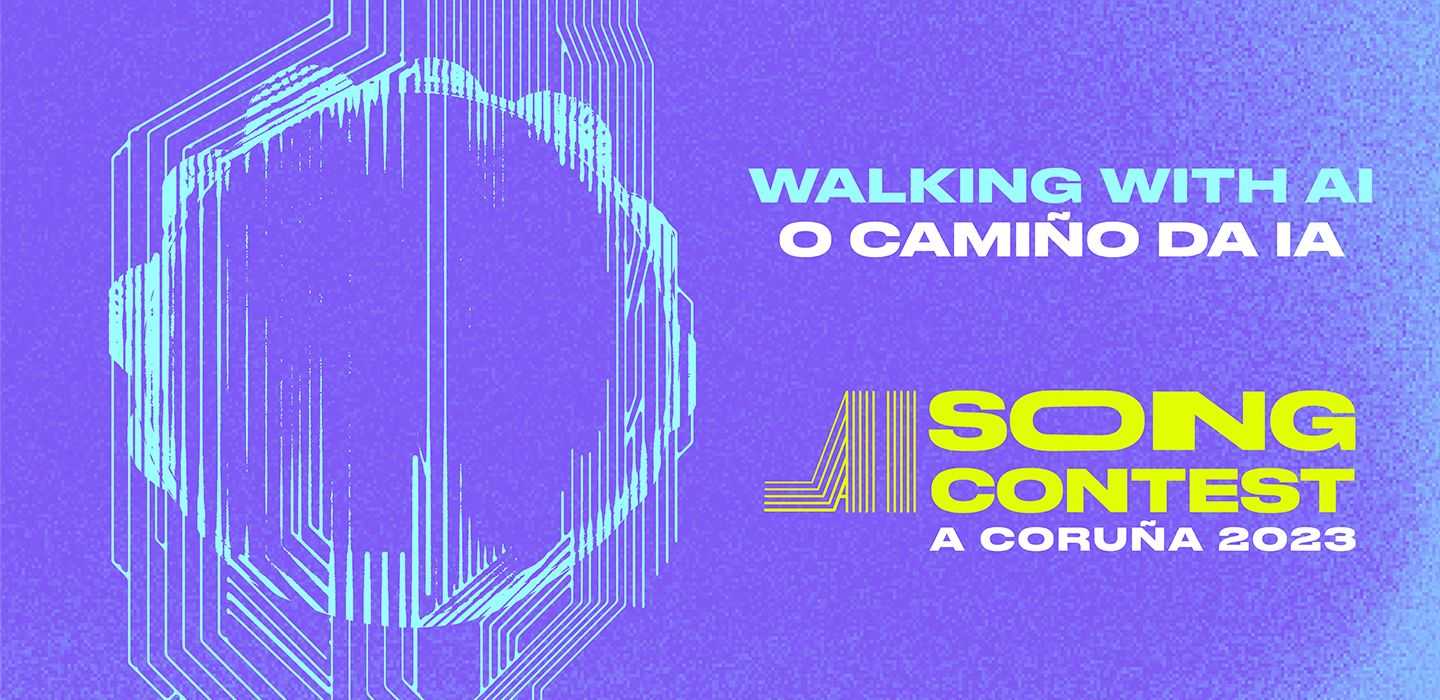
Ana Kiro will represent Galicia in the world Eurovision of artificial intelligence with the PAMP! team and the song "Florespiña".
CiTIUS actively participates in this joint initiative with the Galician delegation of the festival as the architect of the technological part.
-
"Florespiña" is a tribute to the famous singer, a woman ahead of her time: feminist, Galician and forward-looking, an example of resilience personified in the song that symbolically plays with the figure of the gorse flower.
-
Galicia is classified in the Grand Final of the AI Song Contest 2023, after having achieved the silver medal last year with "AI-Lalelo" and organizing the festival this year, which will take place on November 4 in A Coruña.
An artificial intelligence model of the famous singer, presenter and actress Ana Kiro will represent Galicia with the PAMP! team and the song "Florespiña" in the AI Song Contest, the world Eurovision of artificial intelligence, to be held on Saturday 4 November in A Coruña.
The candidacy is made up of a multidisciplinary group of twelve Galician artists, engineers, researchers and musicians who achieved second place with "AI-Lalelo" last year at this festival, and this year had the collaboration of the Singular Centre for Research in Intelligent Technologies (CiTIUS) of the University of Santiago de Compostela (USC). The initiative is led by creative director Joel Cava, head of the Galician delegation and executive producer of the 2023 edition.
The track pays tribute to the popular performer with a musical journey from the past to the future of the artist, including a new version of her in the metaverse, with the aim of immortalising and resignifying her legacy for new generations, using artificial intelligence. María Dolores Casanova González, known as Ana Kiro (1942-2010), was a woman ahead of her time: feminist, Galician and progressive. An example of resilience that is personified in the composition with the image of the toxo flower, which grows in the most inhospitable places and symbolises the resistance of the Galician people, who always knew how to overcome adversity. Her name must not be forgotten, a true leader who fought for freedom and a better society.
The proposal, which has the express approval and recognition of Ana Kiro's family, begins with an emotional recitation by the adopted daughter of Mera (Oleiros), who returns after 13 years of absence due to her death. The queen of light music encourages Galician women and men to defend a new Galicia against subjugation, conformism and complacency. Roots and modernity merge to create her own style, combining verbena, traditional music, trap and electronic music in a sonority never before seen in the honoree. Respect for her career and free artistic creation are the main lines of this work, which tells the story of a woman who longs to have her own voice in a world dominated by men, and in which she also vindicates the rural country, which is currently fading away. The work can be listened to on the main streaming music platforms.
"Florespiña" will compete directly against a dozen finalists from around the world in the Grand Final of this international competition, initially launched in 2020 by the Dutch public broadcasters VPRO and NPO with the supervision of the European Broadcasting Union, and later organised by the Stichting AISC foundation. It will be a live television programme, with a live audience in Studio Follow de A Grela, where Galician culture will be very present, and will turn the city of Herculina into the world capital of music made with artificial intelligence. It will also be an opportunity to give visibility to the future Spanish Agency for the Supervision of Artificial Intelligence (AESIA), which will be born in Galicia as the first organisation in its field in the world. Tickets for the gala are on sale through the Ticket Hoy platform.
The people responsible for this pioneering initiative are called "Ana María Prieto", a research project as a tribute to the first Galician female computer programmer. The group is made up of Juan Alonso, Javi Cardama (CiTIUS), César Díaz (CiTIUS), Fernando Estévez (CiTIUS), Camille Hedouin (Mounqup), Sofía Infante, Ruben Laso (CiTIUS), Eva Outeiro, Xandre Outeiro, David Santos and Marta Verde, coordinated by Joel Cava, and they all see artificial intelligence only as a collaborative and complementary tool to musical work, never as a substitute for people: these are the only decision-makers and supervisors of the creative process, and always following an ethical, responsible and transparent use to promote the language and culture of Galicia.
Creative process
The composition process began last April at the Sony CSL Paris artistic residency, where the runners-up in this competition tested the record company's artificial intelligence tools and wrote the lyrics of the song, making the GPT-J-6B model learn to speak Galician and compose verses based on a contribution of more than 400 verses from the Volai-vai digital songbook, with the alecrin as the storyline. The machine generated the texts, and it was only necessary to correct some mistakes and adapt some phrases, respecting the results of the computer. As for the melody, Google Magenta was used to generate different rhythmic variations of "Viva Galicia", one of Ana Kiro's most played hits, which were used for each verse.
Regarding the music, instruments such as bagpipes, accordion, tambourine and bass drum were recorded in their natural state, which were processed by the DDSP system, achieving an artificial musicality following the previously defined melodic line, and adding a double bass extracted with AI. For the ambient noises, the AudioLDM algorithm was used, which converts the text into sound, providing the computer with references to the lyrics without conditioning them excessively and selecting the best results from among more than a hundred ideas obtained. The Daw WavTool code was used for harmonisation, and the production was arranged and mastered with the artificial solutions offered by the tools Logic Pro, Ableton and Izotope Ozone AI RX 10.
For the generation of the voice synthesis, two timbral transfer models of Ana Kiro, spoken and sung voice, were trained, given the differences in vocal register, thanks to SoftVC VITS Singing Voice Convertion. The process started with an exhaustive work of several weeks, with the phases of documentation, filtering, cleaning and processing of the contents provided by the Galician Radio and Television Corporation (CRTVG), specifically, audio and video of the programmes and specials presented, in which the popular singer took part and performed. In this way, with an input recording of any person, the algorithm was able to create an audio clip with a voice very close to that of the artist, which was punctually corrected with Autotune for the composition.
Finally, the video clip was made with the Midjourney artificial art application, capable of generating static images by writing textual or visual indications, producing various resources, capture by capture, to which movement was subsequently applied with Runway Gen-2, Pika Labs and Leiapix. The result is a journey through deep Galicia with the toxo, its flower and its own folklore as protagonists, as well as recovering Ana Kiro's classic covers and iconography using InsightFaceSwap, and recreating an imaginary performance at Eurovision, a festival in which the performer from Arzúa was about to participate in 1969 representing Spain and Radiotelevisión Española (RTVE), competing for the title with the Catalan Salomé and "Vivo cantando", the eventual winner.
About CiTIUS
The Researchc Center on Intelligent Technologies of the USC (CiTIUS) is the reference research centre in Galicia in the field of Artificial Intelligence, and one of the few specialised in this field at a national level. Accredited by the Xunta as one of the 8 Research Centres of excellence in the community, this benchmark in AI has a team of more than 140 people, and in the last three years has achieved a budget of more than 9.5 million euros.
